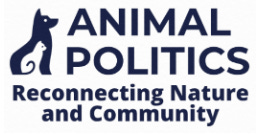Breaking the Chains of Animal Testing: FDA Modernization Act 3.0
The End of Animal Testing May Be Near
A Call for Change: The FDA Modernization Act 3.0
In a bold move to transform drug development and improve public health, U.S. Senators have introduced the FDA Modernization Act 3.0, a bipartisan bill that seeks to replace outdated animal testing with cutting-edge human-relevant methods. Building on the progress of the 2022 FDA Modernization Act 2.0, this legislation aims to align FDA regulations with scientific advancements, paving the way for faster, safer, and more ethical drug testing. By eliminating inefficient and unreliable animal models, the bill promises to accelerate the development of life-saving treatments while reducing costs and ethical concerns.

The Need for Modernization
Animal testing has long been a cornerstone of drug development, but its inefficiencies are now undeniable. An overwhelming 90-95% of drugs that succeed in animal trials fail in human clinical settings, underscoring the limitations of this approach. These failures not only waste billions of dollars but also delay access to potentially life-saving treatments and inflict incalculable suffering on tens of thousands of animals.
The ethical and scientific drawbacks of animal testing are becoming increasingly hard to ignore. Dr. Zaher Nahle, a senior scientific advisor for the Center for a Humane Economy, has criticized the FDA’s reliance on animal models, stating that "the FDA’s obsessive reliance on artificial animal models that do not replicate human biology and disease pathology is indefensible" in light of more advanced human-relevant models.
Emerging technologies like organ-on-chip platforms and in vitro human cell models offer more accurate predictions of how drugs will behave in humans. Organ-on-chip, for instance, uses microchips lined with human cells to mimic the function of human organs, providing a more direct and effective way to test new drugs. In vitro methods, which involve testing drugs on human cells in a lab setting, allow researchers to observe cellular responses that are more predictive of actual human reactions than animal models could ever provide.
Tamara Drake, director of research and regulatory policy at the Center for a Humane Economy, advocates for these modern methods, stating that human-relevant testing can "lead to more cures, cut drug development time, lower drug prices, and confirm the FDA’s stated commitment to reducing and replacing animals in drug development."
Bipartisan Support
The FDA Modernization Act 3.0 has garnered robust support from Senators across the political spectrum, including Cory Booker (D-N.J.), Eric Schmitt (R-Mo.), Rand Paul (R-Ky.), and others. This legislation is complemented by a companion bill introduced in the U.S. House of Representatives earlier this year by Representatives Buddy Carter (R-Ga.), Nanette Barragán (D-Calif.), Diana Harshbarger (R-Tenn.), and Rosa DeLauro (D-Conn.). Currently, the House bill enjoys bipartisan backing with 20 Republican and 21 Democratic cosponsors and is under consideration by the Committee on Energy and Commerce.
Addressing FDA Inaction
Despite the enactment of the FDA Modernization Act 2.0 in 2022, which eliminated the outdated animal testing mandate, the FDA has yet to update its regulations accordingly. This delay has caused significant confusion within the scientific and biotech communities, which had lauded Congress for its forward-thinking measure. The new legislation aims to ensure the FDA aligns its regulations with the law, thereby accelerating drug development and improving patient outcomes.
Expert and Coalition Endorsements
The bill has received endorsements from a wide array of stakeholders, including animal welfare groups, biotech firms, and patient advocacy organizations. Notable supporters include Animal Wellness Action, the Center for a Humane Economy, and Teva Pharmaceuticals. These organizations recognize the potential for this legislation to drive significant advancements in drug development by adopting human-relevant models that can more accurately predict human responses, thus saving time and resources.
The coalition supporting this bill underscores a broad consensus on the need for reform, aiming to modernize the drug development process and enhance public health outcomes. By integrating cutting-edge scientific methods, the FDA Modernization Act 3.0 seeks to ensure a more efficient and humane approach to drug testing, ultimately benefiting patients and the scientific community alike.
Call to Action
As science continues to evolve, the FDA Modernization Act 3.0 offers an opportunity to foster drug development that is more efficient, ethical, and aligned with the needs of patients. By supporting this bill, we can drive significant advancements in both science and medicine, ensuring a brighter and more humane future for all.
Readers interested in supporting the FDA Modernization Act 3.0 are encouraged to contact their representatives. Here’s how you can get involved:
Identify Your Representatives: Visit the official U.S. Senate and House websites to find your elected officials.
Contact Information:
Phone: Call the U.S. Capitol Switchboard at (202) 224-3121 to reach your Senator or Representative.
Email: Use the contact forms available on their official websites.
Direct Support: Reach out to Animal Wellness Action for guidance.
By taking these steps, you can help ensure that the FDA Modernization Act 3.0 receives the attention and support it deserves, paving the way for a more humane and effective approach to drug development.
Ed Boks is a former Executive Director of the New York City, Los Angeles, and Maricopa County Animal Care & Control Departments. His work has been published in the LA Times, New York Times, Newsweek, Real Clear Policy, Sentient Media, and now on Animal Politics with Ed Boks. He is available for consultations at animalpolitics8@gmail.com





Why has the FDA not updated its regulations to comply with the new laws passed by Congress? Is it that special interests connected to Big Pharma are delaying its implementation? Or is there a large business concern which "supplies animals" to labs? Or both.
This bill getting bi-partisan support is great news! BTW, the Physicians Committee for Responsible Medicine has been advocating for this for years, as well as advocating a vegan diet. Their public statements focus more on benefits for humans (the only way to "sell" the message to most of the public), but I know that compassion for animals is a big concern for them.